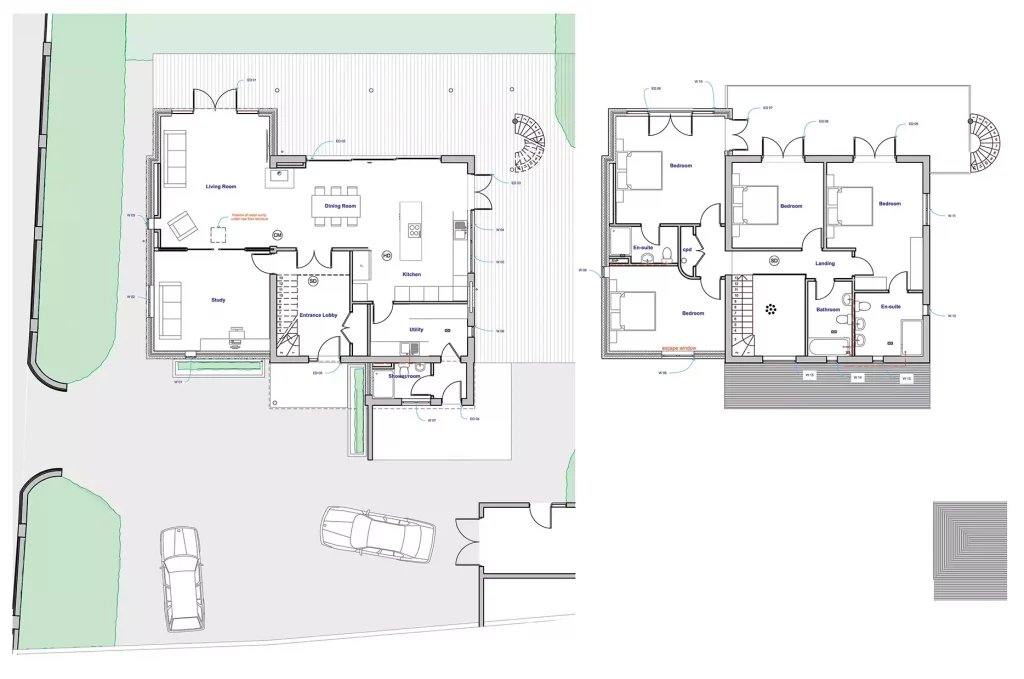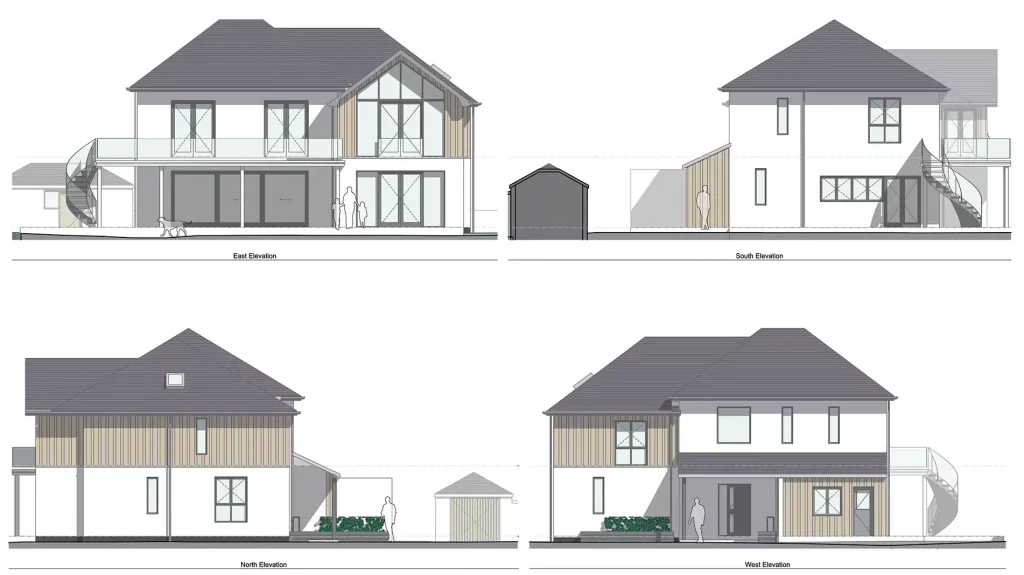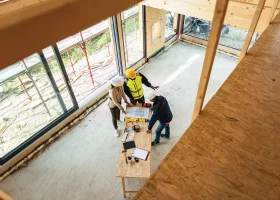
Learn from the experts with our online training course!
Use the code BUILD for 20% off
Learn from the experts with our online training course!
Use the code BUILD for 20% offIt is conventional wisdom that homeowners looking to do building work should approach their local planning authority for informal advice before submitting a planning application, whether that’s for a new property or work on an existing house.
Through written advice or a face-to-face meeting, you get a sense of whether your proposal will be accepted and, if not, how you might change it to get it approved. You get useful information on the constraints affecting your site (if it is in a flood zone, for example, or the green belt), the planning policies that apply to your proposal, the plans and documents you need to submit and the fee you will need to pay.
Surely it’s a no-brainer, then? It seems obvious that engaging with the council early in the design process makes it more likely that any issues will be ironed out and a much better application will be submitted, with a much-improved chance of success.
Above all, if your proposal has no hope of getting through, it’s best to find out before you have spent a lot of money on the final architect’s drawings, technical reports and application fees.
Yet, as a planning consultant, I rarely advise my clients to submit a pre-application. Pre-apps work well for large, complicated schemes where a range of difficult issues need to be discussed before the final drawings can be prepared.
For minor schemes such as extensions and self builds, I find the process slow and expensive, and the advice given can be vague and unhelpful. When weighing up whether you want to go in for pre-app, ask yourself these questions:
90% of minor and householder planning applications are decided in eight weeks – the national target. But there is no time limit for pre-application advice, so case officers tend to prioritise issuing decisions on their live planning applications over writing up advice and arranging meetings for pre-applications.
The last time I submitted a client’s pre-app for a simple rear extension, I waited four months for a response. Doing a planning application instead would have saved half that time.
Several times over the years, I have given up on waiting for the council’s pre-app response and just submitted the formal application. If you are not in a rush to start your project, this is not a major concern. But if time is tight, it may be better to skip the pre-app and put in a full application instead.
Learn More: Beginner’s Guide to Planning Permission

In-depth architectural plans and drawings aren’t needed for the pre-app stage, but the more detail you present, the more feedback you’ll be able to get from the council. These examples are by Marraum
Pre-application services used to be free, but councils are now permitted to charge for them. Many don’t ask for a fee for small projects, such as home extensions. However, most charge for larger developments, including self builds. In some cases, pre-application advice is much more expensive than the full planning application fee for the same development.
Unsurprisingly, the costliest local authorities are in London. Camden Council charges £475 for pre-application advice on an extension – a planning application for the same development is just £206. Self builders in Ealing pay £4,860 for advice on constructing a new house – the equivalent planning application fee is only £462.
In both areas, it would be much cheaper to instruct a good local planning consultant to advise you on the proposal and submit an application directly, without going down the pre-application route.
Learn More: 23 Projects You Can Do Without Planning Permission
Case study Philip and Emma Walters’ Timber Frame HomePhilip and Emma Walters took pre-app advice from South Northants Council on how much larger their self-build project could be compared to the bungalow it was to replace – gaining support for a 135m2 one-and-a-half-storey home with four dormer windows. Image: Mark Welsh |
The main problem with taking pre-application advice is not the time or the cost; it is the fact that you do not always get a clear or useful response. A formal planning application forces a council to come to a final and formal decision. It must weigh up the planning merits and compromise where appropriate.
If refusing the application, it must set out what aspects of the proposal were acceptable and narrow down their concerns to specific reasons for refusal. In a pre-application response, the case officer can sit on the fence.
There is no obligation to make a firm decision on a finely balanced issue. In fact, it is common to receive a response that sets out both sides of an argument but does not settle the question.

Presenting detailed plans means that you’ll be able to get more in-depth feedback, these examples are from Marraum
Read More: How to Get Planning Permission in the Countryside
The pre-app does not, in any case, bind the council in a future decision on a planning application. That’s because any advice is given without prejudice. It’s a sensible caveat – after all, the information presented to the case officer at pre-application stage is usually in sketch form, and the council has not yet consulted neighbours and other third parties.
Plus, once a full application is submitted, the case officer might spot a problem that hadn’t occurred to them at pre-app stage. In any case, the decision is not the case officer’s alone to make. Senior officers can overrule a case officer’s decision, whatever advice had been given at pre-app stage.
What’s more, some planning applications are not decided by the planners at all; they go to the planning committee (of elected councillors), who will pay little attention to any advice that was given at pre-app stage.
Learn More: Designing for Planning Approval Success
While there are downsides, if you have the time, money and patience, a pre-app with the council can provide a useful steer on whether your development proposal might be accepted and how you can improve it. Here’s how to get the most out of the process
The planners will not simply look at an empty site and tell you what you will be able to build there – they can only respond to a firm proposal. Sketch plans are fine (you don’t need a full set of drawings at this stage), but the more detail you submit as part of your pre-app, the more useful the response you will receive. For example, if you give no detail of how you will access your site, the council may not give you any feedback on the highway safety aspect of your proposal. If you do not explain what materials you will use in your self build, the council will not be able to tell you whether they are acceptable.
You will get far more out of the pre-app process if you can sit across the table from your case officer and discuss the proposal in some detail, rather than simply submitting some information and receiving a letter in response. A face-to-face meeting also gives the opportunity to build some rapport with your case officer.

It’s usually best to arrange a face-to-face meeting if you go down the pre-app route, so you can better gauge the planner’s reaction
In most cases, the officer that deals with your pre-app will deal with the formal application that follows it. They are far more likely to be helpful (taking your calls, responding to emails, negotiating with you on some of the details of your application) if you have met before. Some councils charge more for a meeting (rather than just written advice), but it is well worth it.
It is difficult to fully understand a site without seeing it in person and you are likely to get much more helpful guidance from a case officer if you can get them to come and visit your site. Like the face-to-face meeting, the site visit is also an opportunity to build a positive relationship with the case officer, to your benefit in the planning application process later.
If you have a meeting or site visit with the case officer, make sure you obtain a written record of what has been discussed and agreed. Case officers will usually follow up a meeting with a written summary of their final recommendations. However, I suggest that you email the officer immediately after the meeting with a bullet-point summary of exactly what was discussed, giving them an opportunity to clarify any details – this can be useful in later negotiations.
You should always submit a planning statement with your application, and it should trumpet the fact that you engaged with the local authority early. Show how you have taken the council’s advice on board, especially if you have revised your plans through the pre-app process. If you haven’t followed the pre-app advice, your planning statement will need to explain why you think that is justified to maximise your chances of approval.
More from Martin: Planning Applications: What Do Council Planners Want?
